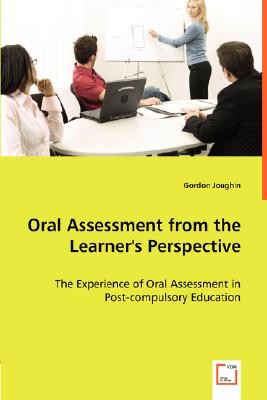
- We will send in 10–14 business days.
- Author: Gordon Joughin
- Publisher: VDM Verlag Dr. Mueller E.K.
- Year: 2008
- Pages: 144
- ISBN-10: 3639001826
- ISBN-13: 9783639001822
- Format: 15.2 x 22.9 x 0.8 cm, minkšti viršeliai
- Language: English
- SAVE -10% with code: EXTRA
Oral Assessment from the Learner's Perspective - The Experience of Oral Assessment in Post-compulsory Education (e-book) (used book) | bookbook.eu
Reviews
Description
Oral assessment of student learning has a long history in tertiary education, at both undergraduate and postgraduate levels, and features in examinations for entry into many professions. Despite its ubiquity, little is known about how oral assessment is experienced from the student's perspective. Based on intensive student interviews, this book presents contrasting ways in which one common form of oral assessment - the oral class presentation - can be experienced by students. Students who saw presentations as persuasive arguments found their assessment to be intensely engaging - they prepared thoroughly, interacted vigorously with their audience, and developed complex understandings of their topic. The study shows that oral assessment, if conducted in the right way, can be significantly richer and more personally engaging than written assignments. The book therefore offers important insights into the nature and function of oral assessment and will be of interest to any university or college teacher seeking to use oral forms of assessment to evaluate their students' learning while promoting deep approaches to that learning.
EXTRA 10 % discount with code: EXTRA
The promotion ends in 22d.18:36:13
The discount code is valid when purchasing from 10 €. Discounts do not stack.
- Author: Gordon Joughin
- Publisher: VDM Verlag Dr. Mueller E.K.
- Year: 2008
- Pages: 144
- ISBN-10: 3639001826
- ISBN-13: 9783639001822
- Format: 15.2 x 22.9 x 0.8 cm, minkšti viršeliai
- Language: English English
Oral assessment of student learning has a long history in tertiary education, at both undergraduate and postgraduate levels, and features in examinations for entry into many professions. Despite its ubiquity, little is known about how oral assessment is experienced from the student's perspective. Based on intensive student interviews, this book presents contrasting ways in which one common form of oral assessment - the oral class presentation - can be experienced by students. Students who saw presentations as persuasive arguments found their assessment to be intensely engaging - they prepared thoroughly, interacted vigorously with their audience, and developed complex understandings of their topic. The study shows that oral assessment, if conducted in the right way, can be significantly richer and more personally engaging than written assignments. The book therefore offers important insights into the nature and function of oral assessment and will be of interest to any university or college teacher seeking to use oral forms of assessment to evaluate their students' learning while promoting deep approaches to that learning.


Reviews